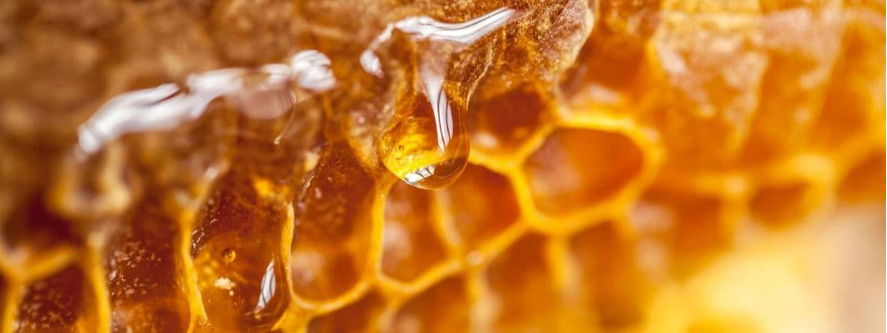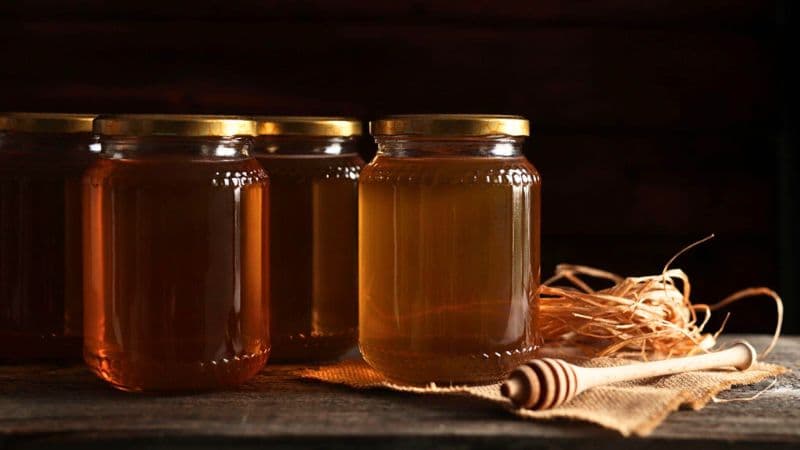Honey is a very complete food, rich in vitamins and nutrients, and it has many properties and benefits, which have been widely known and used throughout history. Thus, the properties of honey are very numerous.
The truth is that this natural sweetener has numerous properties, ranging from relieving sore throat, to healing wounds or burns. Next, we show you what they are.
What are the properties of honey?
Antibacterial potential
Honey has numerous antibacterial properties. This is due to the inhibins present in it; which together with glucose oxidase, give it broad bactericidal properties. These help protect the body against free radicals.
Free radicals are responsible for premature aging of the skin; as well as the development of chronic or heart diseases.
Strong antioxidant
Another of the properties of honey is related to the antioxidant effects it has. In this way, it works as a dietary supplement, preventing the development of heart diseases or the immune system. In addition, honey has anti-inflammatory properties and helps improve eye health.

Antiseptic and anti-inflammatory
Throughout history, honey has been used to heal infected wounds and small burns. This is because honey has incredible antiseptic properties that limit the chances of infection in open wounds or burns.
To do this, it is simply applied on the skin combined with some herbs. In this way, it is possible to treat sunburns, reduce skin blemishes and treat infected wounds.
On the other hand, honey can also be used to reduce muscle inflammation. To do this, simply apply directly to the muscle and massage. Not only will this reduce the swelling, but it will also help relieve pain from it.
Favors digestion
By combining honey with other natural products, such as lemon juice or cinnamon, it is also possible to promote the activity of the digestive system. In this way, the consumption of honey facilitates the metabolism of food, helps to relieve stomach acidity and even favors proper intestinal transit.
Thus, honey is used to alleviate various stomach ailments, such as stomach heaviness or constipation.

Relieves cough and sore throat
The truth is that among the properties of honey is also the relief of coughs and sore throats. Simply add a teaspoon of honey to a lemon tea to fight a cold. In fact, it is as effective a remedy as the cough medications themselves.
That is why it is widely used especially with children to help relieve sore throats and fight colds. Also, unlike cough medicines, honey has no side effects and helps children rest better; so parents can be much calmer.
Hydration
The moisture present in honey influences not only its texture, flavor or color; but it can also be used to provide moisture to our body. In this way, honey is widely used for its properties to moisten hair.
Other properties of honey
Apart from the previously mentioned properties, honey has other benefits, among which we find the improvement of sleep, the relief of stress and even the reduction of fatigue.
In addition, honey is also used to reduce pain in young children with teeth, improve memory problems and even regulate blood sugar or treat asthma.

The composition of honey
Honey is mainly composed of sugars (78-80%), of which 38% correspond to fructose and 31% to glucose. The remaining percentage corresponds to sucrose, maltose and other similar compounds.
Apart from sugars, honey has other elements that influence its incredible properties:
- Amino acids: in honey we can find a wide variety of free amino acids. The presence of polina from bees stands out; although we can also find aspartic, glutamic, alin or arginine, among others.
- Proteins: The percentage of proteins is almost nil, since it is around 0.26%.
- Minerals: Depending on the variety of honey with which we find ourselves, the minerals present in it vary. However, there are minerals such as zinc, magnesium or potassium, which are present in all variables of honey.
- Vitamins: Among the properties of honey, its high number of vitamins stands out, which without actually covering daily needs, are highly assimilable. Thus, we find Vitamin A, Vitamin B1, Vitamin B2, vitamin B3, Vitamin B5, vitamin B6, Vitamin B8 – Vitamin B9, Vitamin C, Vitamin D or Vitamin K.
- Enzymes: Within honey, we can also find enzymes such as amylase A and B or Glucose Oxidase.
You may also like:



